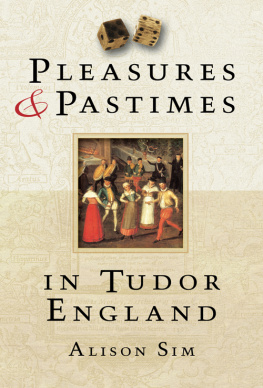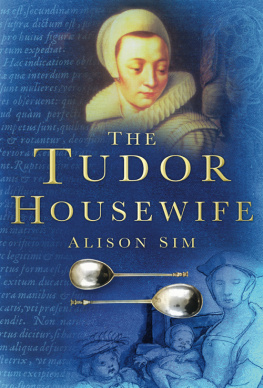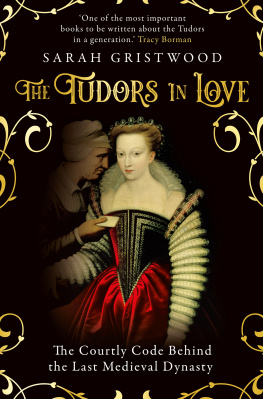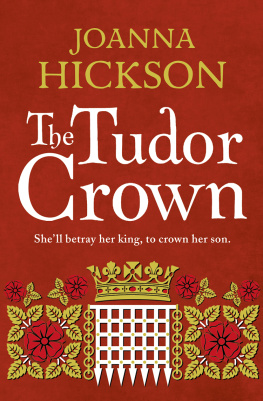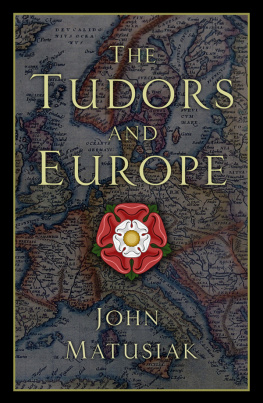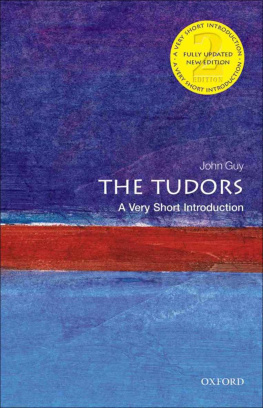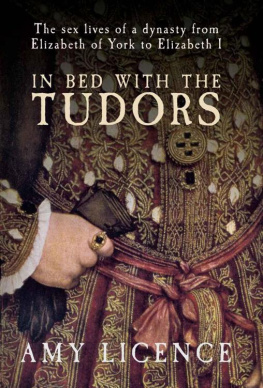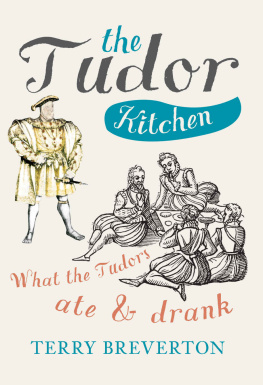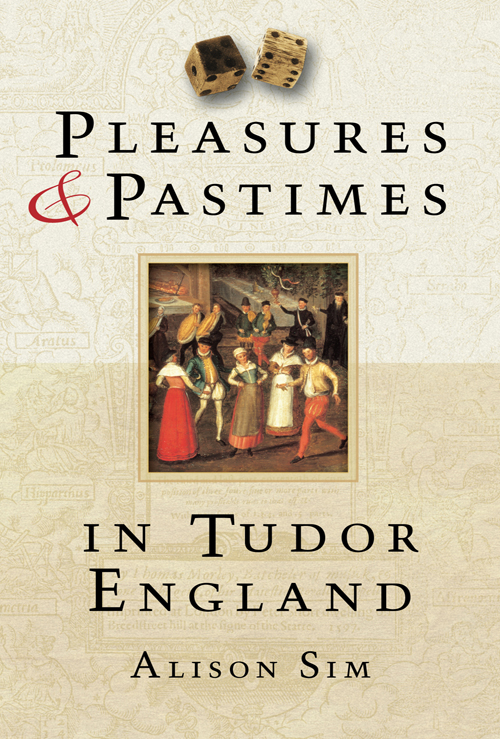P LEASURES
& P ASTIMES
IN T UDOR
E NGLAND
A LISON S IM

To Jane and Geoff, with love
First published in 1999
This edition first published in 2009
The History Press
The Mill, Brimscombe Port
Stroud, Gloucestershire, GL5 2QG
www.thehistorypress.co.uk
This ebook edition first published in 2011
All rights reserved
Alison Sim, 1999, 2002, 2009, 2011
The right of Alison Sim to be identified as the Author of this work has been asserted in accordance with the Copyrights, Designs and Patents Act 1988.
This ebook is copyright material and must not be copied, reproduced, transferred, distributed, leased, licensed or publicly performed or used in any way except as specifically permitted in writing by the publishers, as allowed under the terms and conditions under which it was purchased or as strictly permitted by applicable copyright law. Any unauthorised distribution or use of this text may be a direct infringement of the authors and publishers rights, and those responsible may be liable in law accordingly.
EPUB ISBN 978 0 7524 7578 3
MOBI ISBN 978 0 7524 7577 6
Original typesetting by The History Press
Ebook compilation by RefineCatch Limited, Bungay, Suffolk
Contents
Acknowledgements
Thanks to the following people for providing specialist knowledge: Richard Burnip, Chris Gidlow, Robert and Jane Hugget, Caroline Johnson, Martin Pope and Roy Porter.
Thanks as usual to Margaret Peach for editing and making comments in her own inimitable style.
Last but not least, thanks to Malcolm and Moira Lewin, and Janet and Keith Waldock for chocolate, gin and sympathy.
Introduction
The sixteenth century in England was an age of change. The government became more centralised and powerful, changing the way the bureaucracy worked and the way the aristocracy behaved. The cultural changes of the Renaissance and the politics of the time became entwined so that the Church, the bedrock of medieval society, was weakened by the dissolution of the monasteries and by the religious tensions which eventually split the Roman Catholic and Protestant Churches. This in turn altered much that was so familiar to people of the time, even down to the way that the passing of the seasons was celebrated. The pleasures and pastimes of the English would never be the same again.
The centralisation of the state affected the way in which even the most powerful people behaved. Success at court became more important than ever before as the monarch became more powerful. The king was the man with the best rewards to hand out, whether in terms of jobs, lands or financial rewards like pensions. More than ever, careers were made or broken by royal favour or displeasure. Even the greatest lords no longer had the power they had once enjoyed. There was no Warwick the Kingmaker, who could literally decide the fate of kings, in the sixteenth century as there had been in the fifteenth.
In the Middle Ages a king, or a great lord, needed above all things to be a successful soldier. The force of law was not always maintained and you might find yourself having to defend your lands from other people by force. Land was the most secure form of wealth at the time, so there was always someone keen to take your land away from you. The fifteenth-century letters of the Paston family mention several disputes over the ownership of land, in particular one over the ownership of Caister Castle and another over the ownership of the manor of Gresham. Both properties changed hands by force several times during the dispute.1
This sort of behaviour was not tolerated by the Tudors. Henry VII outlawed all private armies except the royal bodyguard, so nobles no longer had the resources to flaunt the law in this way. Henry VIII was also determined to be absolutely in control of his realm. Disputes were to be settled in the law courts, not by private individuals fighting it out with no reference to the royal will.
The land disputes did not stop. There was no land registry at this time so it was often was a complicated business deciding who exactly owned what. The difference was that disputes now took place in the courts. This meant that landholders needed an education, in order to cope with the legal system. Most heirs to estates would henceforth finish their education at the Inns of Court, the legal schools. This meant more work for lawyers too, making the law a profitable career.
Henry VIIIs determination to control his realm also meant a bigger bureaucracy, resulting in more career opportunities in the Tudor equivalent of the civil service. The changed atmosphere of the court also meant that if government office did come your way, a good education was necessary to carry it out effectively. Unlike his medieval predecessors, Henry VIII didnt have to look to the Church to provide educated administrators. There were plenty of secular men with the necessary training. Cardinal Wolsey was the last of the great prelate-administrators. All of these factors together meant that a good academic education, and not just training in military skills, became necessary for the successful Tudor.
This new emphasis on education meant that the pleasures of the aristocracy were changing. The Renaissance had well and truly arrived in England by the sixteenth century and with it had come the idea of the courtier as all round Renaissance man, as expressed in Castigliones Book of the Courtier.2 This was first published in Italy in 1528 and, although it was not published in England until 1561, the ideas expressed in it were already current in English court circles before then.
Castigliones courtier is everything from a warrior to a diplomat. He knows how to make elegant conversation on a wide range of topics, he has a knowledge of drawing and appreciates painting and sculpture, and he is a skilled musician who plays several instruments. He has an intimate knowledge of the classics, he is a good sportsman; in fact, he can do everything. Castigliones courtier is, of course, an ideal. How many Tudor courtiers lived up to this picture of perfection is a matter of debate, but at least the ideal was there. The contrast with the behaviour of the knights of the round table in Malorys Morte dArthur (finished in 1469 and first printed by Caxton in 1485) is startling. Malorys knights spend all their time feasting, getting involved in very bloody fights of one kind or another, going to mass and dallying with their various ladies. They are heroes in the medieval tradition. They would hardly have been welcomed at the refined court of Urbino, where Castigliones book is set. Times had definitely changed.
The new view of what constituted an ideal courtier led to new ideas in education. To be successful as a newcomer to the court you needed a patron, someone who knew the monarch personally and who could mention your name to him or her at the vital moment. A good way of gaining access to these exclusive circles was to become the kind of person who could make interesting conversation, dance elegantly and match the king at sport. Part of Henrys affection for Thomas More was based on the fact that they used to study astronomy together. Henry is recorded as having enjoyed singing with courtiers such as Sir Peter Carew. If you wanted to educate your son for life at court, he would have to study more than the arts of war.
The Tudor determination to dominate and shine changed not only the atmosphere of the court, but also its physical appearance. Henry VII had fought his way to the throne and spent most of his reign building up the royal finances and making sure that the English nobility knew that the Tudors were here to stay. England was kept out of expensive wars. Henry VIII came to the English throne in 1509 at the age of seventeen. His father had left him a fortune, admittedly not as large as is often stated3 but enough to give him ambition. He was determined that his country should no longer be a backwater, but that it should be pulled into the centre of European affairs. As a sign of this, Henry VIII wanted to surround himself with a glittering court. The result was a new interest in the arts, interior design and even gardening.

